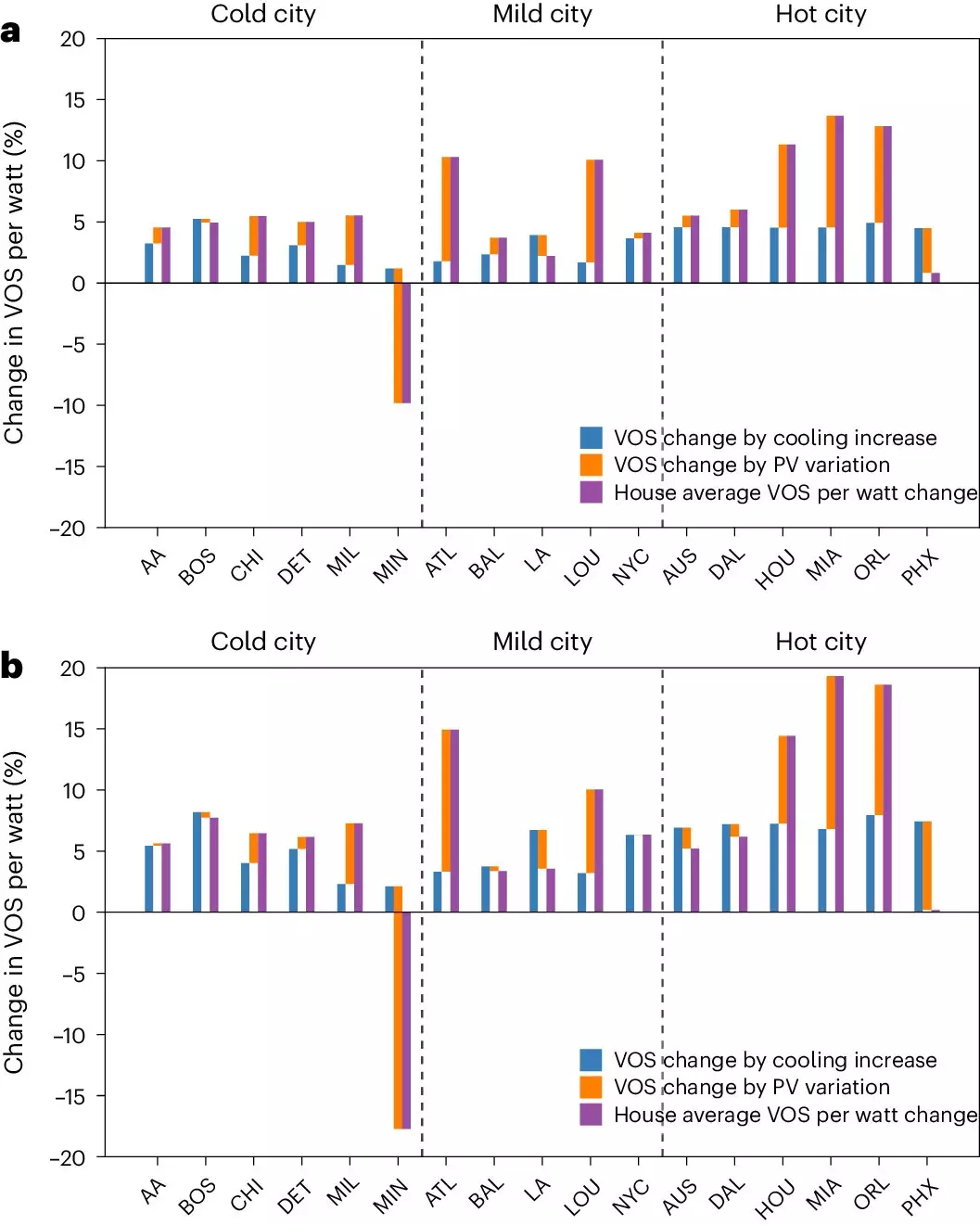Residential rooftop solar panels are set to increase in value across the United States as a result of climate change, according to a recent study by the University of Michigan. The study suggests that the future value of solar panels could rise by up to 19% by the end of the century. This increase in value is defined as the financial benefits at the household level, which includes savings on electricity bills and revenue from selling excess electricity back to the grid, minus the initial installation costs.
Impact of Climate Change on Solar Value
One of the key findings of the study is the impact of climate change on the value of rooftop solar panels. The increased demand for residential air-conditioning due to rising temperatures is expected to be a major driver of financial gains from solar panels. Additionally, the performance of solar panels in response to changing climate conditions will also affect their value. The study looked at data from 2,000 households in 17 U.S. cities and analyzed how air-conditioning demand and solar-panel performance would change under a moderate climate-warming scenario.
The study found that rooftop solar panels would increase in value in nearly all of the cities studied, regardless of whether they were located in warm or cold climates. The city of Miami saw the largest increase in value, while only Minneapolis experienced a decrease in financial benefits from rooftop solar installation.
Future Solar Panel Performance
The performance of solar panels in response to rising temperatures and changes in cloud cover was also a key factor in determining the future value of rooftop photovoltaics. The study found that cities like Ann Arbor, Austin, Chicago, Dallas, Detroit, Houston, Louisville, and Milwaukee would see a decrease in solar panel efficiency due to rising air temperatures but could benefit from reduced cloud cover. On the other hand, cities like Baltimore, Boston, Los Angeles, Minneapolis, New York City, and Phoenix were expected to experience both warmer and cloudier conditions, leading to decreased electrical output from rooftop solar.
As a result of climate change, the demand for residential space cooling is predicted to increase significantly across all 17 cities studied. By mid-century, cooling demand is expected to rise by an average of 35%, and by the end of the century, it could increase by an average of 64%. This rise in demand will mean that more solar-generated electricity will be consumed at the household level, rather than being sold back to the grid, benefiting owners of rooftop solar systems.
Access and Affordability
While the financial gains from rooftop solar will mainly benefit households that can afford to install panels, there are programs in place to increase accessibility to solar energy. These programs aim to make solar energy more accessible to lower-income individuals through cost defrayal mechanisms, government installations on public buildings, and community solar programs that benefit entire communities. The goal is to ensure that more people can share in the anticipated benefits of rooftop solar energy.
The future value of residential rooftop solar panels is set to increase in the face of climate change, with significant financial gains expected for households across the United States. This increase in value is driven by factors such as increased demand for air-conditioning, changes in solar-panel performance, and rising temperatures. While there are challenges posed by climate change, the study highlights the potential benefits of rooftop solar energy and the need for households to consider future value when investing in solar panel installations.


Leave a Reply